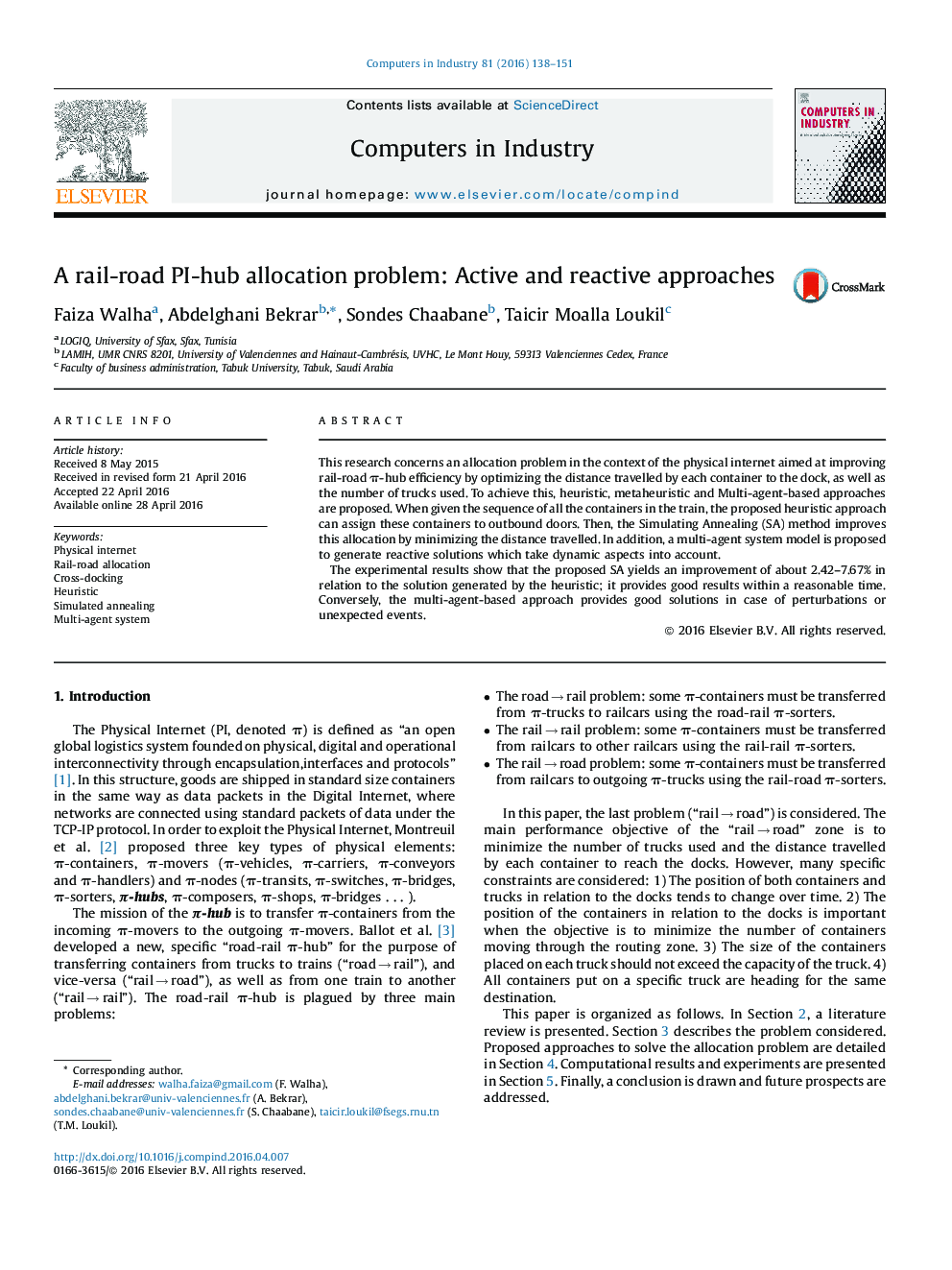| Article ID | Journal | Published Year | Pages | File Type |
|---|---|---|---|---|
| 508581 | Computers in Industry | 2016 | 14 Pages |
•The rail-road π-hub allocation problem for the newly proposed physical internet concept is studied.•Both static and dynamic scenarios are considered.•For static case, heuristic and Simulating Annealing based approaches are proposed.•Multi-agent based approach is proposed to deal with dynamic scenarios in case of perturbations.•All approaches are evaluated on simulated scenarios.
This research concerns an allocation problem in the context of the physical internet aimed at improving rail-road π-hub efficiency by optimizing the distance travelled by each container to the dock, as well as the number of trucks used. To achieve this, heuristic, metaheuristic and Multi-agent-based approaches are proposed. When given the sequence of all the containers in the train, the proposed heuristic approach can assign these containers to outbound doors. Then, the Simulating Annealing (SA) method improves this allocation by minimizing the distance travelled. In addition, a multi-agent system model is proposed to generate reactive solutions which take dynamic aspects into account.The experimental results show that the proposed SA yields an improvement of about 2.42–7.67% in relation to the solution generated by the heuristic; it provides good results within a reasonable time. Conversely, the multi-agent-based approach provides good solutions in case of perturbations or unexpected events.
